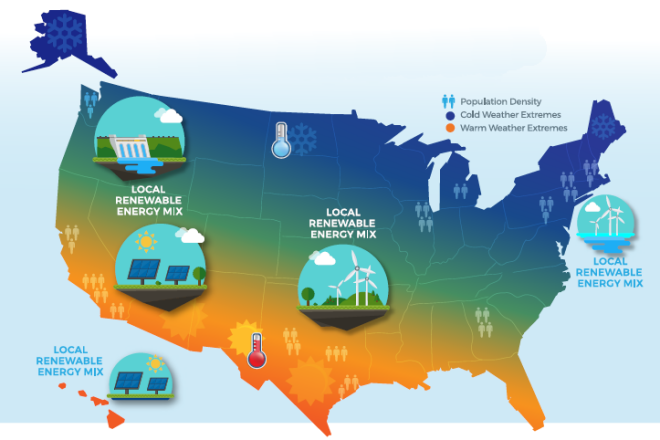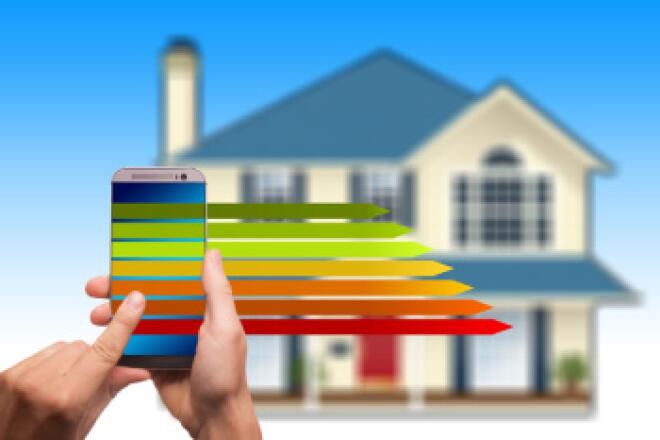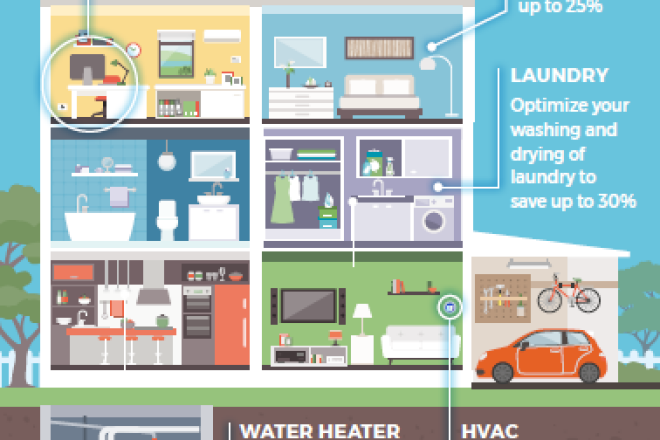
How We Pay For Energy
Energy is a fundamental part of our day-to-day lives. We use energy to light, heat and cool our homes, transport us, communicate with others and power our everyday activities. Most of us take for granted that when we flip the switch, the lights go on. But did you know the electricity system that provides power is changing dramatically?
Companies are innovating to create new ways to manage and pay for the energy we use to power our lives. Read on to learn more about some of these amazing innovations.
Controlling and managing your energy usage from the palm of your hand
Using mobile apps to monitor and pay for energy
Gone are the days when you had wait for your monthly utility bill to find out how much energy you used that month and how much it cost. User-friendly web-based applications and smartphone apps are on the rise to help consumers track and pay for the energy they use.  AEP Ohio, for example, provides electricity to about 1.5 million residential customers, and they’ve developed an app called “It’s Your Power” in partnership with Powerley. In addition to enabling customers to pay their bill online, the app enables customers to set budget targets to manage electricity usage and set personalized alerts to notify them if their usage is trending high. The app can also help customers monitor their daily electricity usage in real-time and identify and control which appliances and devices are consuming power from anywhere.
AEP Ohio, for example, provides electricity to about 1.5 million residential customers, and they’ve developed an app called “It’s Your Power” in partnership with Powerley. In addition to enabling customers to pay their bill online, the app enables customers to set budget targets to manage electricity usage and set personalized alerts to notify them if their usage is trending high. The app can also help customers monitor their daily electricity usage in real-time and identify and control which appliances and devices are consuming power from anywhere.
Using tips and tricks to help you be a smarter energy consumer
Companies like Bidgely, Powerley, Sense and Tendril have created solutions that not only monitor your home’s energy usage and identify which appliances and  devices are using energy at any given moment, they provide you with tips, tricks and other ideas for ways to save energy and money so you pay less down the road. After initially configuring these innovative software and/or hardware solutions, they run behind the scenes to monitor your home’s energy consumption and then proactively send you text messages or other alerts with suggestions on ways you could reduce your energy consumption and save money.
devices are using energy at any given moment, they provide you with tips, tricks and other ideas for ways to save energy and money so you pay less down the road. After initially configuring these innovative software and/or hardware solutions, they run behind the scenes to monitor your home’s energy consumption and then proactively send you text messages or other alerts with suggestions on ways you could reduce your energy consumption and save money.
Getting paid to save energy
Utilities like Pepco in parts of Maryland and the District of Columbia offer you “two ways to save” through their Peak Energy Savings Credit and Energy Wise Rewards Programs. The programs allow you to take an active role in energy management by offering to pay you to reduce electricity use during a set time frame or in exchange for being able to automatically switch off (or on), for just a few minutes, your home’s furnace, water heater or air conditioner during times of peak demand on the electric grid to help balance overall electricity supply and demand. This capability is known as demand response, and not only does it provide a way for you to get paid, it helps reduce the need for your local utility to invest in and expand the grid, which saves the utility and you money.
Purchasing energy only when you need it
Buying from and selling energy to your neighbors
 By tapping the benefits of microgrids, small-scale power grids, and new digital technologies like blockchain, consumers can securely buy electricity from or sell electricity to others in their community. So, for example, if your neighbor has solar panels installed on their roof and they generate more electricity than they need, you can choose to purchase electricity directly from your neighbor rather than from your local utility. The Brooklyn Microgrid, a test project to buy and sell renewable energy credits among neighbors, is currently underway with 50+ participants in the Park Slope and Gowanus neighborhoods in Brooklyn, New York.
By tapping the benefits of microgrids, small-scale power grids, and new digital technologies like blockchain, consumers can securely buy electricity from or sell electricity to others in their community. So, for example, if your neighbor has solar panels installed on their roof and they generate more electricity than they need, you can choose to purchase electricity directly from your neighbor rather than from your local utility. The Brooklyn Microgrid, a test project to buy and sell renewable energy credits among neighbors, is currently underway with 50+ participants in the Park Slope and Gowanus neighborhoods in Brooklyn, New York.
Paying for energy as you need it
Prepaid cellphone plans are a popular way to manage and control the amount of time and data you use with your cellphone, and the same concept is being applied to energy. Companies like PayGo have developed innovative solutions that utilities can offer their customers to help them plan and manage their electricity usage. Like prepaid cellphone plans, prepaid utility plans use a smartphone app that consumers can use to monitor their electric usage and replenish their account when the balance is running low.
Sharing energy with others
Ending energy poverty
Nearly 50 million people in the U.S. today cannot afford to pay for their energy bills. Instead of standing by and watching millions make the difficult choice on whether to buy food or pay for their energy needs, Texas- based Direct Energy, through a partnership with Gridmates, improved their Neighbor-to-Neighbor bill assistance program so that customers can use a convenient app to donate funds to neighbors in need through a cloud fundraising tool. The program helps Texans who are struggling to pay their electricity bill by providing easy ways to donate to their Texas neighbors. The tool converts the dollar donation — let’s say $25 — to the energy donation equivalent — potentially up to a week’s worth of electricity for a family in need.
based Direct Energy, through a partnership with Gridmates, improved their Neighbor-to-Neighbor bill assistance program so that customers can use a convenient app to donate funds to neighbors in need through a cloud fundraising tool. The program helps Texans who are struggling to pay their electricity bill by providing easy ways to donate to their Texas neighbors. The tool converts the dollar donation — let’s say $25 — to the energy donation equivalent — potentially up to a week’s worth of electricity for a family in need.
What is the future of paying for power?
Better options and more dependable service at no cost to comfort and convenience. Whether managing your energy usage, interacting with your neighbors or optimizing your choices, these new innovations in how you pay for electricity will bring your relationship with power to the next level, empowering you to make better decisions for yourself, your family and your home.
Download this fact sheet.
Watch the video.



